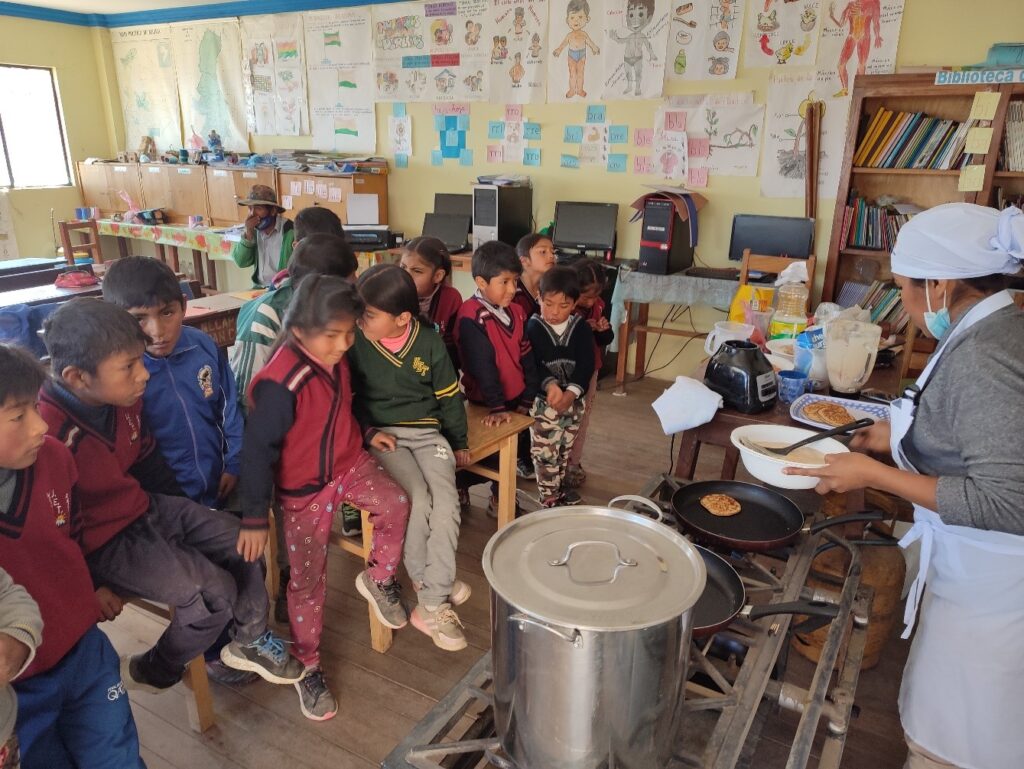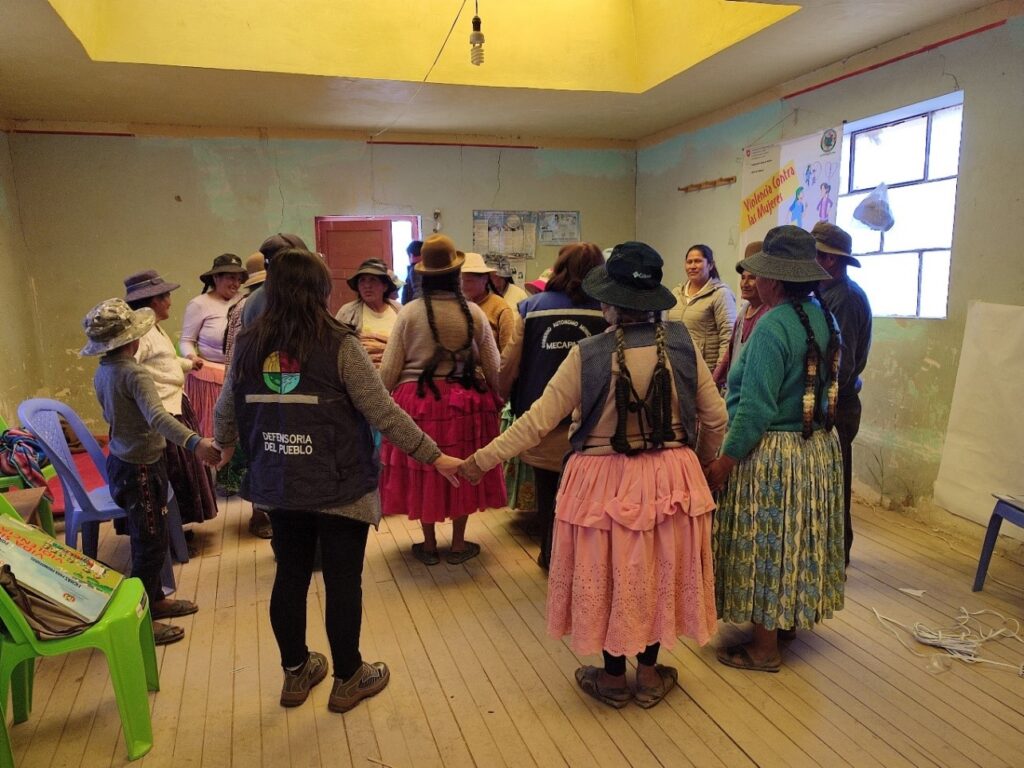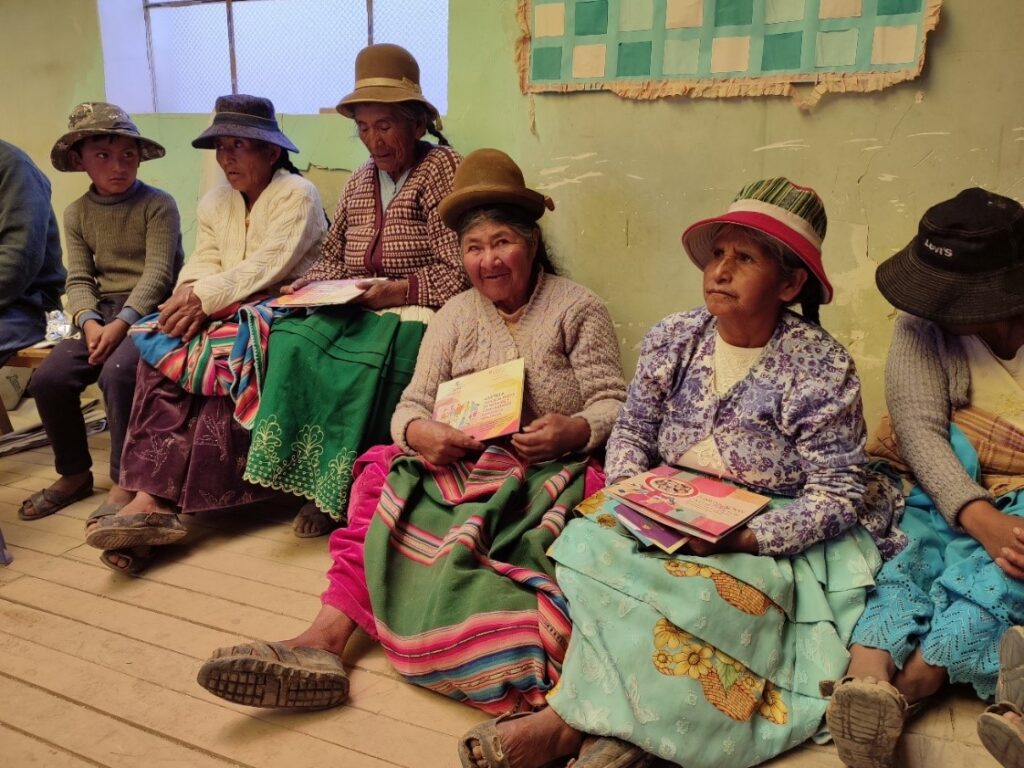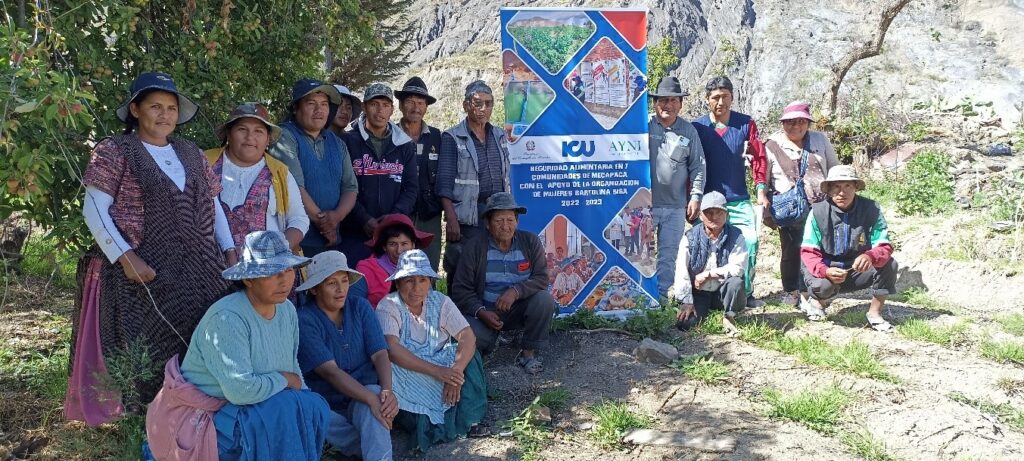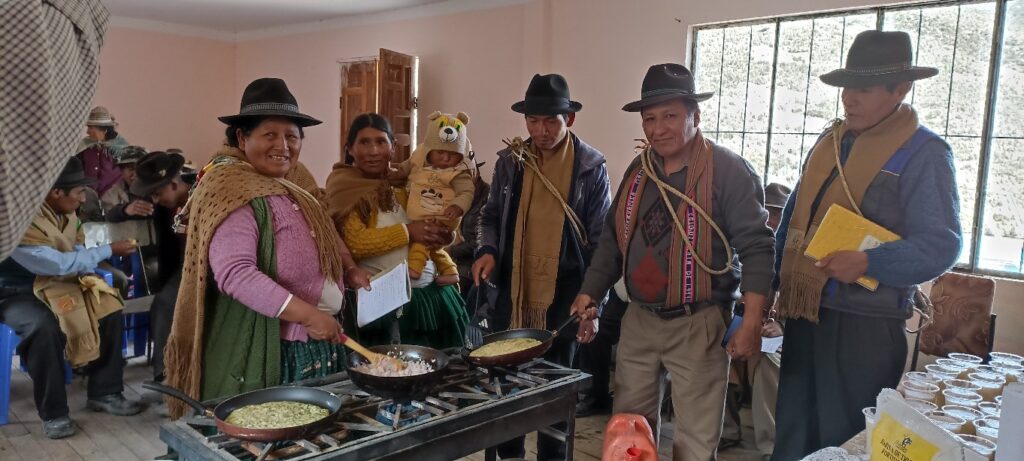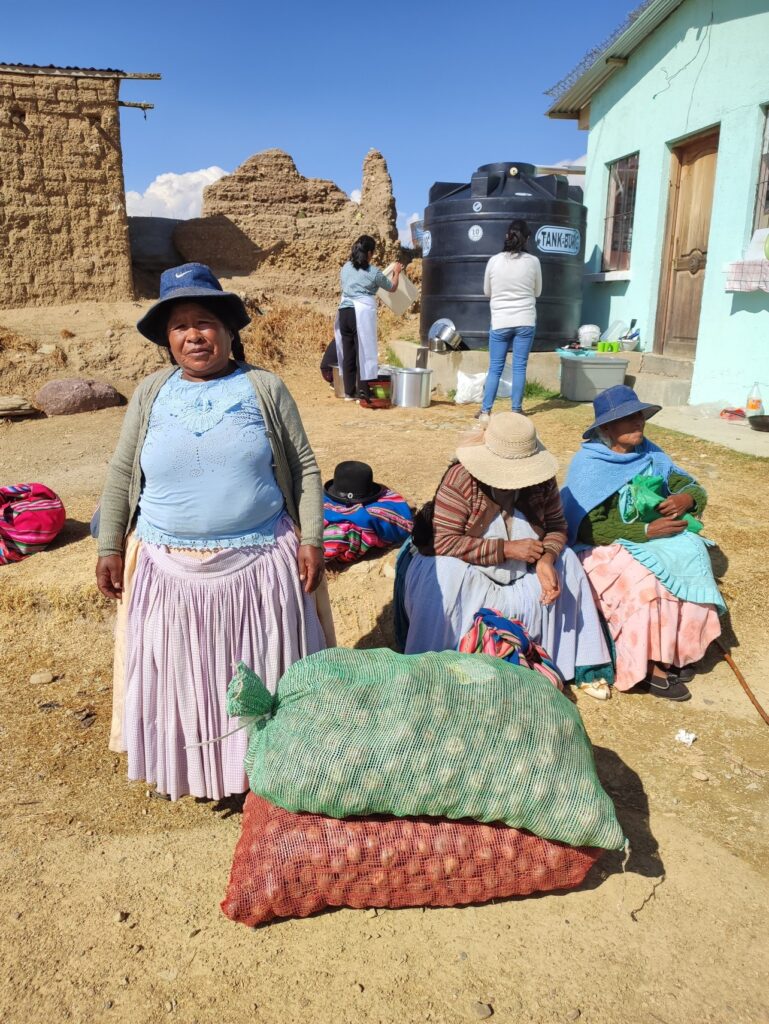Today is the International Day of Rural Women.
Did you know that women represent more than 40% of the agricultural labor force in the world?
Women carry out a substantial proportion of agricultural labor force, including informal work, and perform the bulk of unpaid care and domestic work within families and households in rural areas. They make significant contributions to agricultural production, food security and nutrition, land and natural resource management and climate resilience.
Even so, women and girls in rural areas suffer disproportionately from multidimensional poverty: they are less easily accessible to access land, agricultural inputs, markets and high-value agri-food chains, to credit and to obtain lower prices for their crops. Structural barriers and discriminatory social norms continue to restrict women’s decision-making power and political participation in families and rural communities.[1]
In Bolivia, 46% of families are financially supported exclusively by women. However, in the rural area of the Altopiano region, gender inequality remains very strong and women have little participatory power to the governance of communities. The agricultural unions, which are the highest representative body of each community, have a small representation of women, who very often occupy the least important positions.
In this context, ICU, in partnership with the association AYIN, implements the project “Sustainable food sovereignty in 7 indigenous communities Aymara facilitating the participation and decision-making of community organizations”, funded by the 8×1000 of the Italian State.
The objective of the project is to contribute to achieve sustainable food sovereignty in the 7 intervention communities of the municipality of Mecapaca: Jancosuni, Colquechata, Cochiri, Azupaca, Yanari Bajo, Yanari Alto and Tumusa, facilitating the participation and decision-making of community organizations.
In particular, the project works directly with the Agricultural Unions of the Bartolinas Mujeres of the intervention communities, thus helping to promote the central role of women in agriculture, promoting their autonomy and increasing their prestige as a women’s organization. Bartolinas benefit from training and seminars to improve their technical, political and economic knowledge, with the ultimate aim of encouraging sustainable growth of agricultural production.
https://www.un.org/en/observances/rural-women-day.
